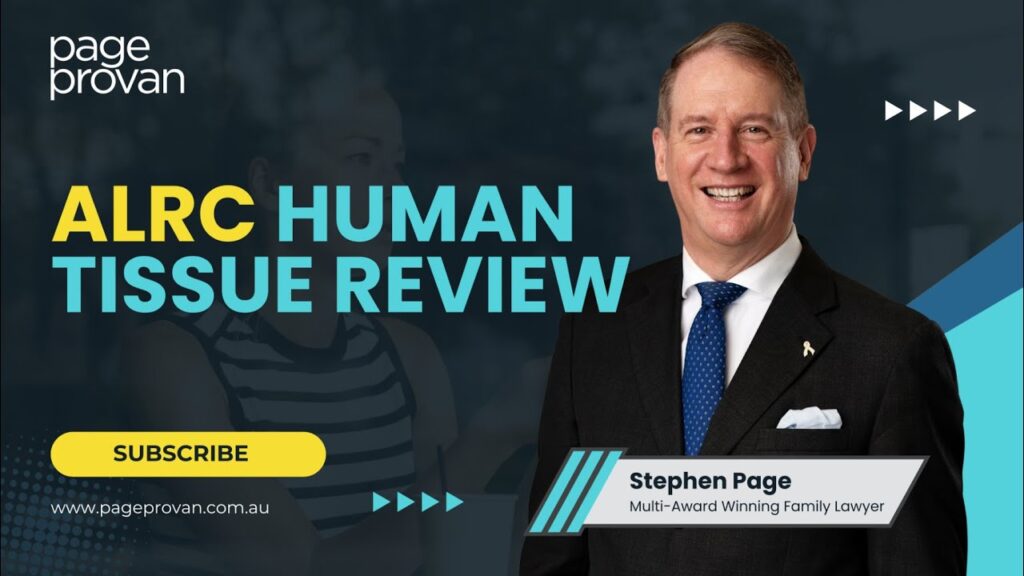Wednesday, February 13, 2019
In 2011 in Vegas of all places, I had an extraordinary conversation with a man I had just met. He was Steve Snyder. Steve was and is the owner of a surrogacy agency, International Assisted Reproduction Center in Minneapolis, a long time ART attorney and then the chair of the ART Committee of the American Bar Association.
Steve had just organised the world’s first international surrogacy conference which was held by the American Bar Association Family Law Section, in Vegas. I was speaking at the conference, about Australian surrogacy law.
Steve told me in a quiet conversation that there was a proposal from the Hague Permanent Bureau, the body responsible for writing Hague Conventions, of which Australia is a party, about a proposed convention on international surrogacy arrangements. He then told me a model that was proposed about the convention. My reaction was to spit chips. I won’t repeat the words here. They were simply too rude. Like most Americans, Steve was amazingly polite and stood there while I ranted. His mouth was agape. I then realised on the first substantive meeting with him I had probably greatly insulted him. Instead he said he appreciated my candour and agreed with me entirely!
I then found myself after a little while in charge of a project by the American Bar Association to put together a policy in dealing with that proposal at The Hague. Eventually in February 2016 after hundreds or thousands of hours of work with a team of others, but particularly my esteemed co-author Bruce Hale from Boston, that policy became a reality.
Steve is one of the most extraordinary knowledgeable men I have ever met who knows about surrogacy inside and out – and always operates from an ethical framework. He has probably forgotten more about surrogacy than most people will ever know.
He has a wealth of knowledge about surrogacy that is unparalleled.
I am privileged to be joining him and Dr John Hesla to talk about US surrogacy for Australians:
· in Melbourne on Saturday, 2 March;
· in Sydney on Sunday, 3 March;
· in Brisbane on Tuesday, 5 March.
And let me give Dr Hesla a plug. I had the privilege last year of going to Portland on what I was told was one of the few sunny days of the year, and visited ORM Fertility. It is an excellent IVF clinic with high standards. Dr Hesla is a pioneer in his field who has an extraordinary personable nature – what used to be called a doctor’s bedside manner. He is one of those people who just makes me feel comfortable. My clients love him and the quality of IVF from his clinic is excellent.
My first surrogacy case was in 1988. I have acted for between 1,500 and 3,000 surrogacy clients since then. I have also acted for IVF clinics, sperm banks, proposed egg bank, egg, sperm and embryo donors and recipients. I have also acted for widows who want to use their late husband’s sperm in order for them to become parents.
My clients have been from every part of Australia from remote parts of every State and also from the capital cities.
I have also acted for clients who have come from 30 other countries ranging from Russia to Brazil, United States, China and Solomon Islands to just give a few.
I have lost count of the number of clients I have acted for from Queensland, New South Wales or Victoria who have undertaken US surrogacy journeys.
There are offences for those who live in some parts of Australia in undertaking egg donation overseas. These journeys should be taken with particular care. They apply to people living in Queensland, New South Wales and the ACT, for example.
An inadvertent breach of these laws could result in prosecution. The offences have a maximum jail time of 15 years imprisonment.
It is an offence in Queensland, New South Wales and the ACT to engage in commercial surrogacy overseas (including the United States). The maximum penalty varies from one year’s imprisonment in the ACT to 3 in Queensland. In New South Wales the penalty is up to $110,000 fine and 2 years’ imprisonment.
No-one has yet been prosecuted, but authorities have been quite clear in saying that the laws remain on the books and can be enforced as a deterrent for people to undergo commercial surrogacy overseas.
It is possible to engage in non-commercial surrogacy in the United States even for people from Queensland, New South Wales or the ACT, if extreme care is taken. Expert legal advice needs to be obtained so that there isn’t an accidental commission of a very serious offence.
I have suffered infertility. I have two adult sons. My husband Mitchell and I are currently undertaking a domestic surrogacy journey.
The seminars are free.
Melbourne: Saturday 2nd March
State Library of Victoria 328 Swanston Street 2-3.30pm
Sydney: Sunday 3rd March 2-3.30pm
Aerial UTS Function Centre, Building 10, Floor 7, 235 Jones Street UTS
Brisbane– Tuesday 5th March 6.30-8pm Blue Room Cinebar, 151 Baroona Road, Rosalie
To register for the seminars RSVP to sludlow@ormfertility.com.
Things to Read, Watch & Listen












